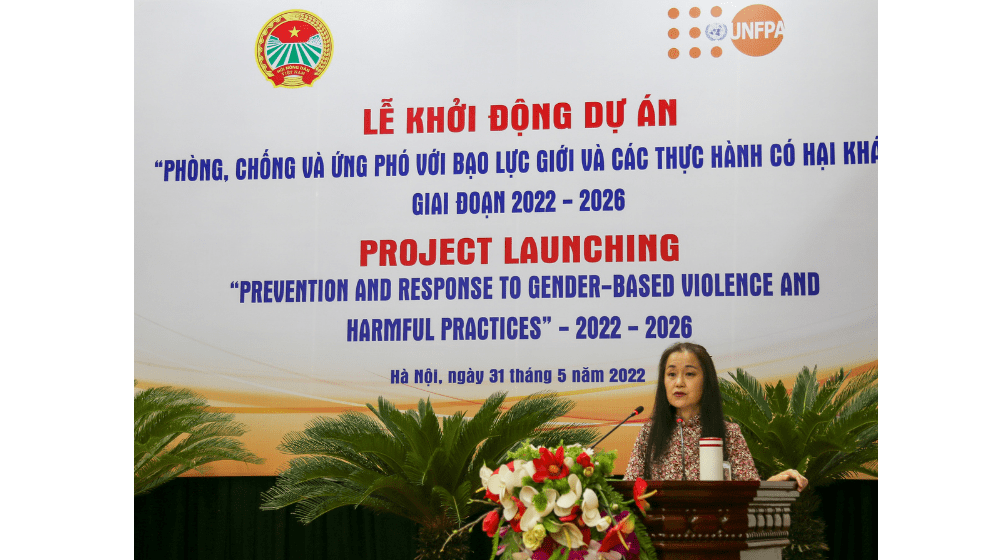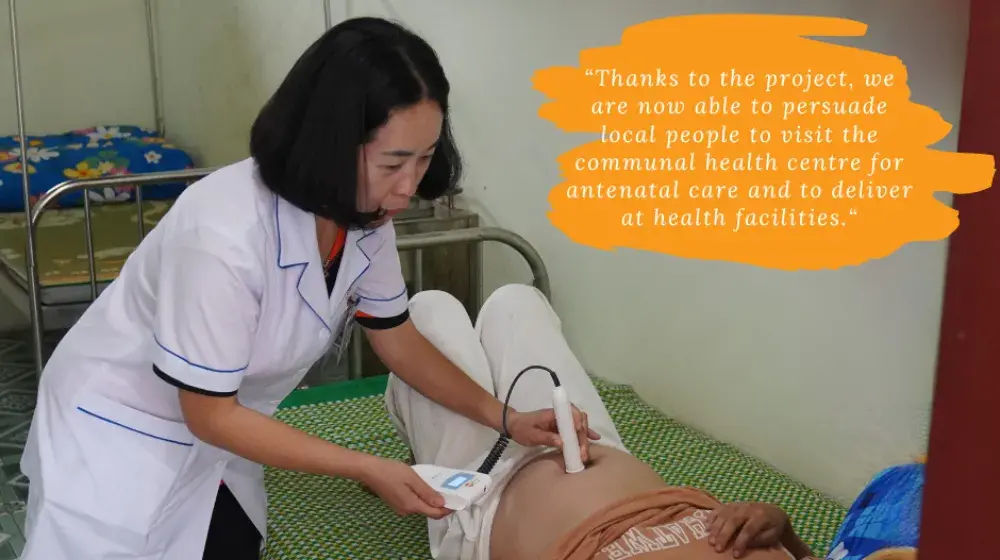Mr. Nguyen Xuan Dinh, Vice Chairman of the Central Committee of Viet Nam Farmers’ Union;
Representatives of the Central Committee of Viet Nam Farmers’ Union, MOLISA, MOCST, MOH and other line-ministries;
Representatives from international and national organisations;
UNFPA colleagues and the media;
I am very pleased to be here today for the launch of the new project titled “Prevention and response to gender-based violence and other harmful practices”, with a total budget of nearly USD 7 million for five years from 2022 to 2026.
Violence against women is one of the most pervasive human rights violations that exist in many countries in the world, and Viet Nam is not an exception. The 2019 National Study on Violence against Women in Viet Nam showed that nearly 2 in 3 women (62.9 per cent) experienced one or more forms of physical, sexual, emotional, and economic violence and controlling behaviours by their husbands in their lifetime. But almost all women (90.4 per cent) who experienced physical and/or sexual violence by husbands did not seek any help from formal service providers, and nearly half of women never talked about it with anybody, largely because of the fear of stigma, discrimination and further harassment. And therefore, and very sadly, violence against women in Viet Nam is very much hidden in Vietnamese society.
The Law on Gender Equality and the Law on Domestic Violence Prevention and Control (DVPC), which were issued and came into force 15 years ago, show some limitations requiring law enforcement evaluation and studies to improve and tailor them to the current situation.
Furthermore, gender-biased, prenatal sex selection is also an alarming issue in Viet Nam, as the sex ratio at the birth is estimated at 111.5 boys per 100 girls, which is third highest in Asia after China and India. As a result, 45,900 girls are estimated to be missing every year.
It is against this background that, as part of UNFPA's new 10th Country Programme, we are providing supporting to the Vietnam Farmer’s Union for innovative and digital initiatives to bring about social and behavioural change. We are also generating support to engage men and boys to take part in addressing harmful masculinity and building healthy and non-violent relationships. Also, the new project will mobilise community participation with the focus on adolescents and youth, men and boys, and other vulnerable groups to change their attitudes and take concrete actions to prevent gender-based violence and other harmful practices.
UNFPA worked with the Vietnam Farmer’s Union over the years, and we are very happy with the level of seriousness and attention that the VFU has always placed to protect the rights of women and girls and provide support for them at community level. The VFU has a large nation-wide network and is able to mobilize Viet Nam’s farmers on social cause. We are confident that we are able to demonstrate much more results together, which is the intent of our partnership.
Dear participants,
Addressing GBV and harmful practices is one of the three main pillars in the new UNFPA Strategic Plan for 2022-2025, and a clear priority for the UNFPA Viet Nam’s new country progrmame 2022-2026. UNFPA will scale up efforts to end gender-based violence and harmful practices in Viet Nam.
I very much appreciate collaboration and commitment of the VFU, as well as that of MOLISA, MOCST, and MOH in promoting gender equality and addressing the issue of violence against women and girls. It is through this team-working we developed over the years that we will be able to achieve a Viet Nam free of violence against women and girls, for Viet Nam where everyone’s rights and choices are respected. We will march together for SDGs by 2030 for women and girls in Viet Nam!
Thank you for your participation and engagement!



